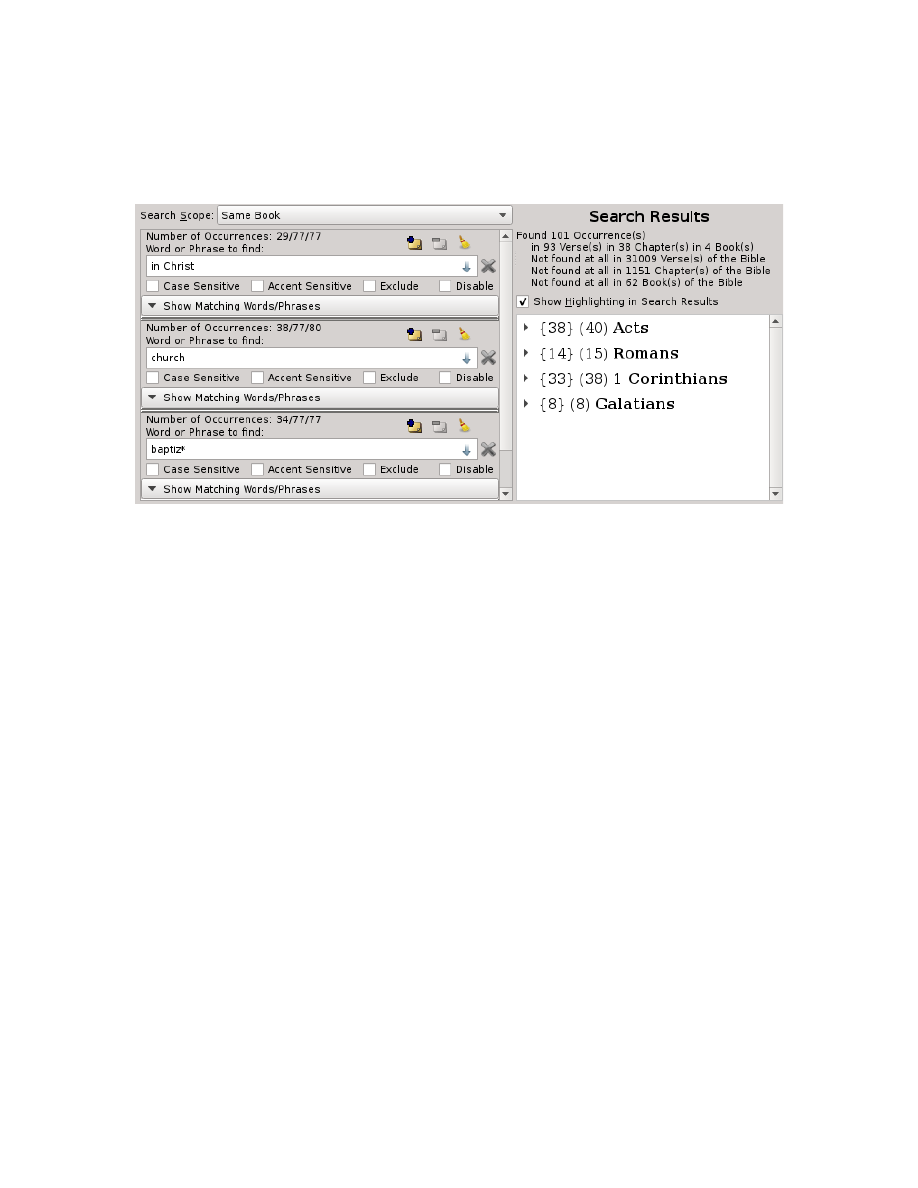
Now, if we increase the Search Scope one more notch, to “Same Book”, we see that
there are 4 Books that contain all three Search Phrases. And now we have 101
Occurrences in 93 Verses of 38 Chapters of those 4 Books:
We could continue experimenting with Search Scope and increase it to “Same
Category” or “Same Testament”. For this particular search example, we already
know that all of the results are in the New Testament, and so “Same Testament”
will give us the same Search Results as “Anywhere in Selected Search Text
(Unscoped)” with a Search Within of “Old Testament” and “New Testament”.
But what about “Same Category”? For that one, I will let you experiment on your
on and compare it to what you've seen with “Same Book”, “Same Chapter”, and
“Same Verse”.
It is necessary to point out one additional Search Scope feature, and that's the
difference between “Anywhere in Selected Search Text (Unscoped)” and
“Together in Selected Search Text”.
The difference is that “Anywhere in Selected Search Text (Unscoped)” means
there is no relationship necessary between multiple Search Phrases. That is, they
don't all have to be found within the Selected Text, whereas “Together in
Selected Search Text” binds them together and requires that all of the selected
Search Phrases be found in the Selected Text.
An example to illustrate the difference would be to search for both “Christ” and
“Messiah”. “Christ” is found 555 times, but only in the New Testament.
“Messiah” is found 2 times, but only in the Old Testament. If you select
“Anywhere in Selected Search Text (Unscoped)” and select only the Old or New
Testament, you will see either 2 or 555 occurrences, depending on which
Testament you select. However, if you select “Together in Selected Search Text”,
and only select one single Testament, you won't see any results, because they are
never found together in either Testament.
47